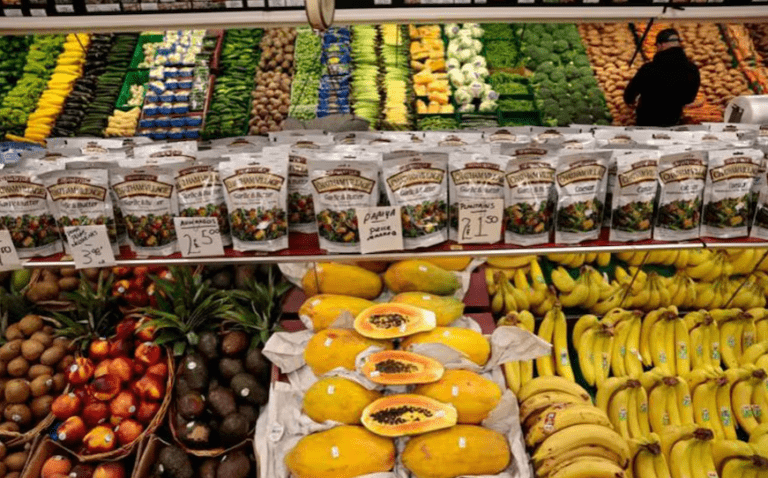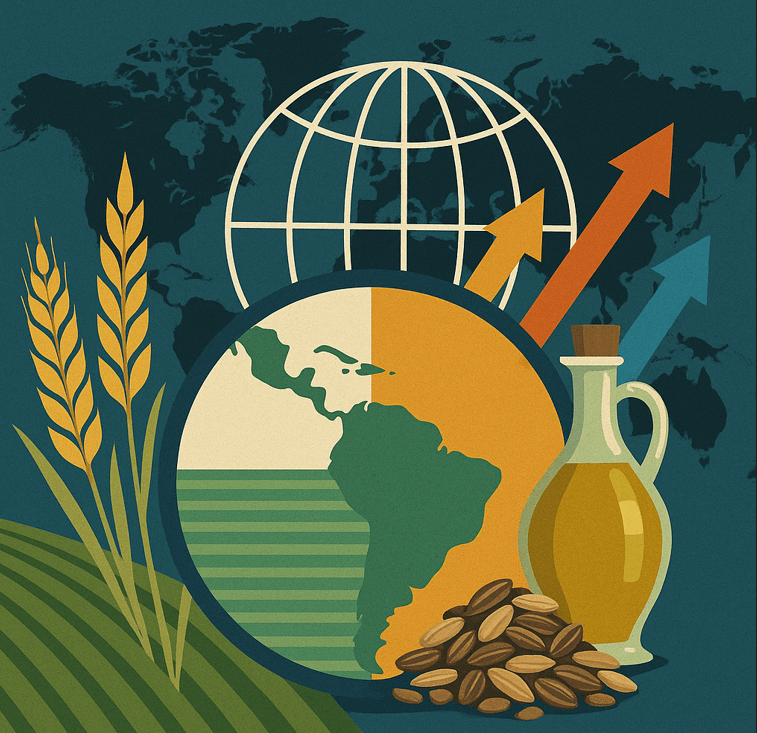Marcelo Regúnaga, La Nación, December 8, 2021
In the 21st century, and with greater emphasis in recent years, the international agenda has registered changes in policy priorities and governance mechanisms for critical issues at the global level. In this new scenario, of greater challenges to meet the growing world demand for more and better food, given the restrictions in the availability and use of natural resources, and the need to mitigate the negative impacts on climate change of the current model economic development, the geopolitical role of food systems has emerged with a high priority in the main international forums (Group of Eight, G-20, United Nations Summit on Food Systems, United Nations Conference on Climate Change). The strategic importance of the agri-food sector has been ranked worldwide and countries are reviewing their policies in this regard.
At a global level, it is necessary to produce more food, healthy and nutritious, with fewer resources and in a more environmentally friendly way. It is an important challenge that poses the need to review the productive strategies and policy priorities in the different countries. Many regions of the world have deteriorated their natural resources with very intensive production systems, which use high doses of fossil energies (fuels, fertilizers, etc.) that have negative impacts on global warming, in addition to the depletion and losses of the productive capacity of their natural resources (water and soil) and biodiversity losses.
The current situation differs substantially between the different countries and regions, so the needs and urgencies in the processes of transformation of the food systems required are also different. This has been recognized at the recent United Nations Summit on Food Systems, held in New York, based on the valuable and coordinated contributions of the Ministers of Agriculture of the Americas, among which the active participation of the Minister of Agriculture of Brazil, Tereza Cristina.
Undoubtedly, the highly intensive production systems of Europe and Asia must urgently initiate a process of important transformations, to evolve towards more sustainable systems with fewer environmental impacts, similar to the continuous process of improvement of agricultural production initiated in the Argentina three decades ago, which today allows us to have a much better situation than those countries.
Faced with the problems of erosion and loss of fertility of the soils of the Pampas region registered until the end of the 80s, due to the use of conventional production systems, with tillage equipment similar to those currently used in Europe, Argentine producers began a process of gradual transformations from the beginning of the 90s, which began with direct sowing, actively promoted by Aapresid (the Argentine Association of Direct Sowing Producers) and which quickly became extensive to almost all of the production of grains of Argentina, without differentiation of producer sizes or location. Direct sowing drastically reduces soil tillage, which makes it possible to significantly reduce the use of fuels and thus greenhouse gas emissions; but at the same time, by not destroying the soil like conventional tillage, it contributes to reconstitute the structure and microbiology of the soil, thereby reducing the amounts of fertilizers to be incorporated into the soil and achieving a much more efficient use of rainwater , obtaining in Argentina high crop yields without the need to irrigate.
The continuous improvement process has gradually incorporated in the last 30 years a set of innovations that make it possible to affirm that Argentine agriculture is one of the most sustainable and environmentally friendly on the entire planet; This has been recognized by experts from international organizations, for example FAO. These innovations include the massive use of transgenic seeds with resistance to insects and other pests, which allow biological control of pests and thus reduce the use of agrochemicals, use agrochemicals with low levels of toxicity (green band) and move towards a more biological agriculture and with less environmental impacts. The use of rotations and the recent incorporation of cover crops also improve the use of water and soil. To this has been added in the last decade the increasingly widespread use of precision agriculture, which allows a much more efficient use of seeds, fertilizers and the different qualities of soils. It is a process of continuous improvement towards a productive agriculture, but more biological and with lower environmental impacts per unit produced, which is often called “sustainable intensification”.
Meat production in Argentina and in Mercosur also has distinctive characteristics, which make it substantially different from the intensive systems in Europe and in other regions of the world. Field production with pastures and in some areas silvo-pastoral livestock, both without irrigation, not only emit less greenhouse gases per unit produced, but also capture them, substantially improving carbon balances. In many cases the balances are carbon neutral or even better, meaning that they can be used in international negotiations to offset emissions from other sectors, such as energy or transport.
In both cases, the Argentine agricultural sector is a source of pride for the country, because it has incorporated early on the challenges of transformations towards sustainable and environmentally friendly systems, which have only been proposed in 2021 at the UN Summit on Food Systems ; and that can serve as an example for the transformations that are required in other countries. In fact, these innovations not only allow the export of more healthy foods with a low environmental footprint to the rest of the world, which constitute a strategic component for the growth of the entire national economy, but they are also already allowing the export of these technologies and machinery equipment to countries from Europe and Africa, with high added value.
It is a serious mistake not to take these circumstances into account in international negotiations in different forums (G-20, COP, etc.), using metrics generated in developed countries for completely different production systems from ours. The cultural influence of these countries and of some NGOs without scientific bases on the local reality can lead to serious strategic errors for a country like Argentina, affecting the geopolitical power provided by its enormous productive capacity with sustainable and environmentally friendly systems. The potential to advance in this process of world leadership in the food sector is very great, if policies to support production and international insertion were implemented in Argentina similar to those applied by neighboring Mercosur countries and in general throughout the Americas. , which are allowing them a very good position in the world context.
Coordinator of GPS in Argentina, Advisory Member of CARI



